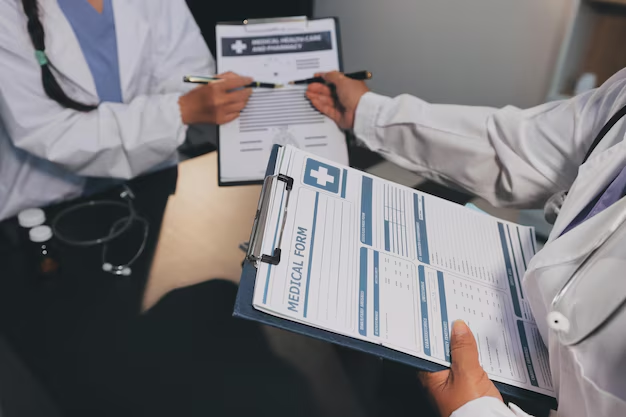Your Guide to Do I Have Medicare Or Medicaid
What You Get:
Free Guide
Free, helpful information about Medicare Insurance and related Do I Have Medicare Or Medicaid topics.
Helpful Information
Get clear and easy-to-understand details about Do I Have Medicare Or Medicaid topics and resources.
Personalized Offers
Answer a few optional questions to receive offers or information related to Medicare Insurance. The survey is optional and not required to access your free guide.
How to Know If You Have Medicare or Medicaid
Navigating the world of healthcare can be daunting, but understanding whether you have Medicare or Medicaid is the first step to maximizing these benefits. Both are essential government programs designed to aid specific groups of people, yet they differ significantly in eligibility and scope. Here's how you can determine which one you have and what that means for you.
Understanding the Basics
Medicare is a federal program generally serving people aged 65 and older, along with some younger individuals with disabilities or specific health conditions like end-stage renal disease. If you or a family member falls into one of these categories and you’ve been paying into Social Security taxes, it's likely that you are eligible for Medicare.
Medicaid, on the other hand, is a state and federal program designed to provide health coverage for individuals and families with low income. Eligibility criteria vary by state, but they generally focus on household income and family size. Pregnant women, children, the elderly, and people with disabilities often qualify for Medicaid benefits.
How to Determine Your Coverage
Check Your Identification Card: The quickest way to identify what coverage you have is by looking at your healthcare card. Medicare cards are typically red, white, and blue, while Medicaid cards vary by state.
Review Your Benefits Statement: If you have regular mail from the pertinent agency concerning benefits, it will likely detail your membership with either Medicare or Medicaid.
Online Account Access: Both Medicare and Medicaid provide online portals. By logging in, you can find detailed information about your healthcare plan, benefits, and any changes.
Contact for Confirmation: When in doubt, contact either the Social Security Administration for Medicare-related inquiries or your state's Medicaid office to confirm your enrollment status.
Transitioning to Financial Assistance and Support
Understanding your health coverage opens the door to broadening your financial and educational support options. Here are some viable paths to explore once you know your healthcare footing:
Financial Assistance Programs
For those who qualify for Medicaid, several programs provide financial support and aid for various living expenses:
- Supplemental Nutrition Assistance Program (SNAP): Often referred to as food stamps, this program helps low-income families purchase food.
- Temporary Assistance for Needy Families (TANF): Offers temporary financial aid to pregnant women and families with one or more dependent children.
Debt Relief and Credit Solutions
If healthcare costs lead to financial strain, consider these options:
- Medical Debt Relief Programs: Some nonprofit organizations can negotiate or reduce medical debt.
- Credit Counseling Services: Professional advice on managing and improving credit can lead to better financial health.
Educational Opportunities
Investing in education can profoundly impact one's financial future. Explore:
- Federal Pell Grants: Available for low-income undergraduate students to help cover tuition costs.
- Work-Study Programs: Offer part-time work opportunities to students needing financial aid.
In an ever-evolving financial landscape, the ability to leverage these resources effectively is invaluable. Empower yourself by exploring these options, leading not just to better health outcomes, but a path towards financial security and educational advancement.
Quick Reference Guide to Assistance Programs
🩺 Healthcare
- Medicare: 65+ or specific disabilities
- Medicaid: Income-based eligibility
💵 Financial Assistance
- SNAP: Nutrition support
- TANF: Financial aid for families
💳 Debt and Credit
- Medical Debt Relief: Negotiate outstanding bills
- Credit Counseling: Improve financial management
🎓 Educational Support
- Pell Grants: for low-income students
- Work-Study: Earn while learning
Taking control of your financial and educational resources begins with understanding your healthcare coverage, opening doors to broader opportunities that can enhance your quality of life.
What You Get:
Free Medicare Insurance Guide
Free, helpful information about Do I Have Medicare Or Medicaid and related resources.

Helpful Information
Get clear, easy-to-understand details about Do I Have Medicare Or Medicaid topics.

Optional Personalized Offers
Answer a few optional questions to see offers or information related to Medicare Insurance. Participation is not required to get your free guide.


Discover More
- Am I Elgible For Medicare
- Am I Enrolled In Medicare
- Am I Qualified For Medicare
- Are Adult Diapers Covered By Medicare
- Are Chemotherapy Drugs Covered By Medicare Part d
- Are Colonoscopies Covered By Medicare
- Are Covid Tests Covered By Medicare
- Are Cpap Machines Covered By Medicare
- Are Cpap Supplies Covered By Medicare
- Are Dental Implants Covered By Medicare
